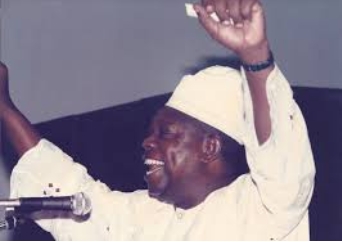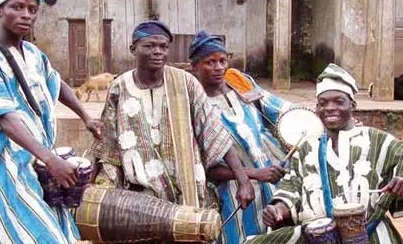
support@yorubalibrary.com
+2348073529208, 07038599574

Yoruba music has long been a powerful force in shaping political movements and social change. From traditional folk songs to contemporary Afrobeat, music has been used as a tool for political expression, resistance, and advocacy in Yoruba culture. Its influence extends beyond entertainment, serving as a voice for the people and a catalyst for change.
Historical Context of Yoruba Music and Politics
Yoruba music has always been inter-woven in the socio-political landscape of the region. Historically, musicians have played a critical role in documenting events, expressing communal sentiments, and challenging oppressive systems. The traditional role of the griot, or storyteller, has evolved into that of the modern musician, who often acts as a commentator on political and social issues.
Traditional Yoruba Music and Social Commentary
Traditional Yoruba music, such as apala and waka, has been used to address social and political issues. These genres often contain lyrics that critique societal norms, question leadership, and advocate for justice. The use of metaphors and proverbs in the lyrics allows musicians to convey powerful messages while avoiding direct confrontation with authorities.
Fela Kuti and the Rise of Afrobeat
One of the most significant figures in using music for political activism is Fela Kuti, the pioneer of Afrobeat. Fela’s music was a direct response to the political climate of Nigeria in the 1970s and 1980s. Through his songs, Fela criticized corruption, military dictatorship, and social injustices. His music became an anthem for resistance and inspired a generation to demand change.
Key Themes in Fela Kuti’s Music
• Corruption: Songs like "Zombie" and "ITT (International Thief Thief)" highlight the corruption and ineptitude of the Nigerian government.
• Human Rights: Fela advocated for the rights of the oppressed, using his platform to speak against police brutality and political repression.
• Pan-Africanism: Fela promoted African unity and pride, challenging the influence of colonial powers and advocating for self-determination.
The Influence of Yoruba Music on Modern Political Movements
Yoruba music continues to influence political movements in Nigeria and beyond. Modern artists draw inspiration from traditional music and Afrobeat to address contemporary issues such as poverty, inequality, and governance.
Modern Yoruba Musicians and Political Activism
• Seun Kuti and Femi Kuti: Fela’s sons continue his legacy, using their music to advocate for social justice and political reform.
• Lagbaja: Known for his masked performances, Lagbaja uses his music to critique societal issues and promote positive change.
• Asa: Asa’s music often addresses themes of identity, corruption, and hope, resonating with audiences seeking change.
Music as a Tool for Social Change
Yoruba music serves as a powerful tool for social change, providing a platform for marginalized voices and fostering a sense of solidarity. Through concerts, protests, and social media, musicians amplify their messages and mobilize communities to take action.
The Impact of Music on Public Opinion
Music has the power to shape public opinion and influence political discourse. By raising awareness of issues and inspiring collective action, Yoruba musicians contribute to the ongoing struggle for justice and equality.
Conclusion
Yoruba music has played a crucial role in political movements, using rhythm and melody to convey messages of resistance, hope, and change. From traditional songs to modern Afrobeat, music remains a potent force for political expression and social transformation in Yoruba culture. As artists continue to challenge the status quo and inspire activism, Yoruba music will remain an integral part of the fight for a more just and equitable society.

The unique styles of Yoruba Bata and Dundun dances…

The emergence of new age social media and impact i…